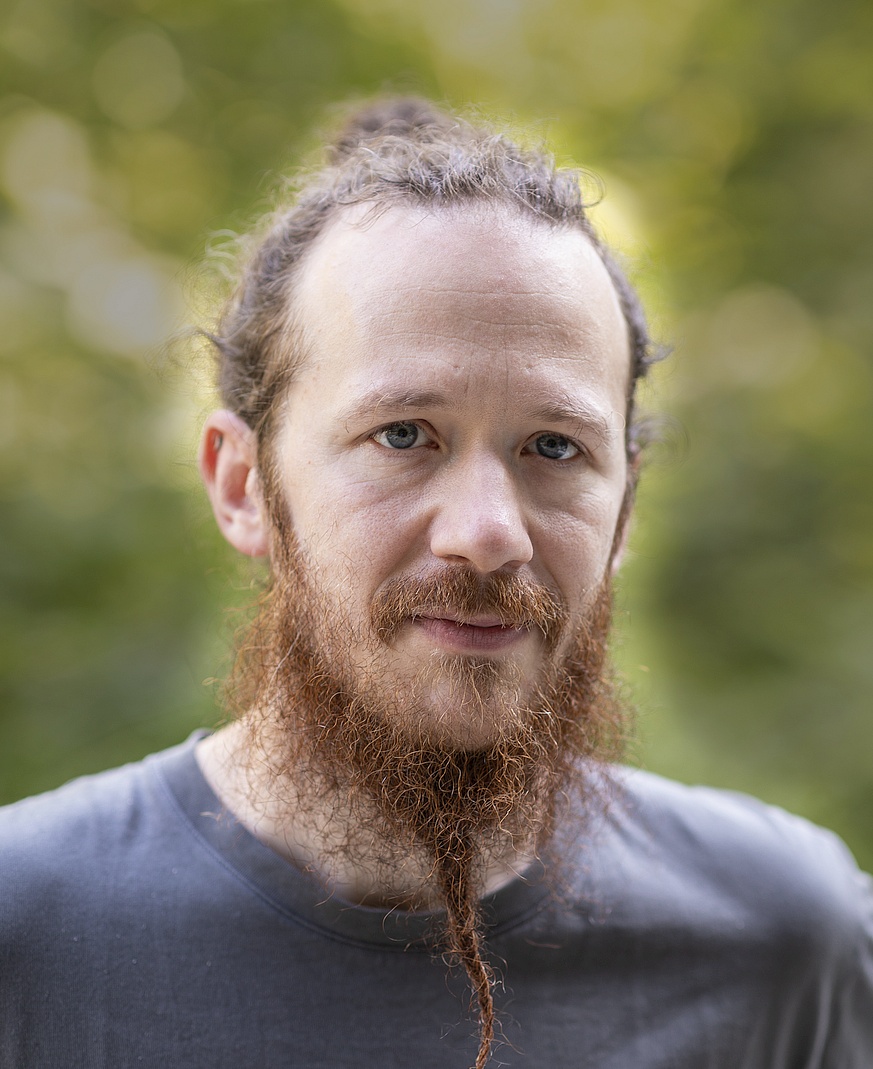Kinesthetic Displays – how vibrotactile feedback creates and changes how we experience the moving body.
Prestigious award for Saarbrücken-based researcher: Paul Strohmeier of the Max Planck Institute for Informatics has been bestowed with an ERC Grant to research and develop algorithms to vibrate actuators in such a way that they generate sensations of movement.

Dr. Paul Strohmeier

Vibrotactile Device
Dr. Strohmeier's research focuses on Kinesthetic Displays, a new class of devices that enable us to experience and perceive movements, even those we do not physically perform. This work builds on his extensive research in tactile feedback, a sensory channel crucial for immersive experiences but still underdeveloped compared to visual technologies like virtual and augmented reality.
While the simulation of optical worlds (augmented reality, virtual reality) has long been possible and has seen significant advancements, virtual experiences for the sense of touch, such as materials, forces, or movement are still very much in their infancy. "To a large extent, we've mastered visual stimuli; we're able to create rich virtual and augmented environments for our eyes. A sense almost no one is even talking about is kinesthesia-our awareness of the position and movement of body parts. And even though this sense is so central to our daily experience, it remains largely unexplored," Strohmeier explains. "This ERC grant will allow us to explore designing for this sensory channel, potentially revolutionizing how we interact with digital systems." Over the next five years, Paul Strohmeier and his team will have almost 1.5 million euros at their disposal.
For instance, while learning to play guitar, tactile stimuli could allow people to feel, in their fingers, how to perform the chord, rather than needing to figure it out from a picture or video. In the same way, it would be possible to generate a positive reinforcement of the movement experienced during orthopaedic rehabilitation measures and thus intensify the therapy.
Kinesthetic Displays have a broad range of applications, such as improving the usability of prosthetics. Instead of relying solely on visual feedback to experience the position and movement of prosthetic limbs, the methods designed by Strohmeier will allow an embodied experience of the prosthetic's movement, similar to how we experience our hand.
In 2019 Paul Strohmeier completed his PhD at the University of Copenhagen, where his dissertation earned the SIGCHI Outstanding Dissertation Award. Subsequently, he joined Saarland University as a postdoc and, since 2021, leads the Sensorimotor Interaction Group at the Max Planck Institute for Informatics. Within the Saarland Informatics Campus, Paul continuously conducts research in close collaboration with Saarland University.
This ERC-funded project promises to push the boundaries of human-computer interaction, potentially transforming fields like remote training, skill sharing, and prosthetics, by integrating an embodied channel of communication into digital systems.
Scientific contact:
Dr. Paul Strohmeier
Max-Planck-Institut für Informatik
Te.: + 49.681.302-71930
Email: pastrohm(at)mpi-inf.mpg.de
http://www.sensint.org/
Background Max Planck Institute for Informatics:
The Max Planck Institute for Informatics in Saarbrücken is one of the world's leading research institutes in Computer Science. Since the Institute's establishment in 1990 it has researched the mathematical foundations of information technology in the areas of algorithms and complexity, as well as in logic of programming. At the same time researchers at the Institute have developed new algorithms for various application areas such as databases and information systems, program verification, and bioinformatics. Basic research in visual computing is also an important focus of the Institute, i.e. computer graphics and computer vision, at the intersection of artificial intelligence and machine learning. With publications at the highest level and the education of excellent young researchers, the MPI for Informatics plays a major part in advancing basic research in computer science. www.mpi-inf.mpg.de/home
Background Saarland Informatics Campus:
900 scientists (including 400 PhD students) and about 2,500 students from more than 80 nations make the Saarland Informatics Campus (SIC) one of the leading locations for computer science in Europe. Four world-renowned research institutes cover the entire spectrum of computer science, namely the German Research Center for Artificial Intelligence (DFKI), the Max Planck Institute for Informatics, the Max Planck Institute for Software Systems, the Center for Bioinformatics as well as Saarland University with three departments and 24 degree programs. saarland-informatics-campus.de/en/
Press contact:
Bertram Somieski
Tel: +49.681.9302-5710
EMail: somieski(at)mpi-klsb.mpg.de
